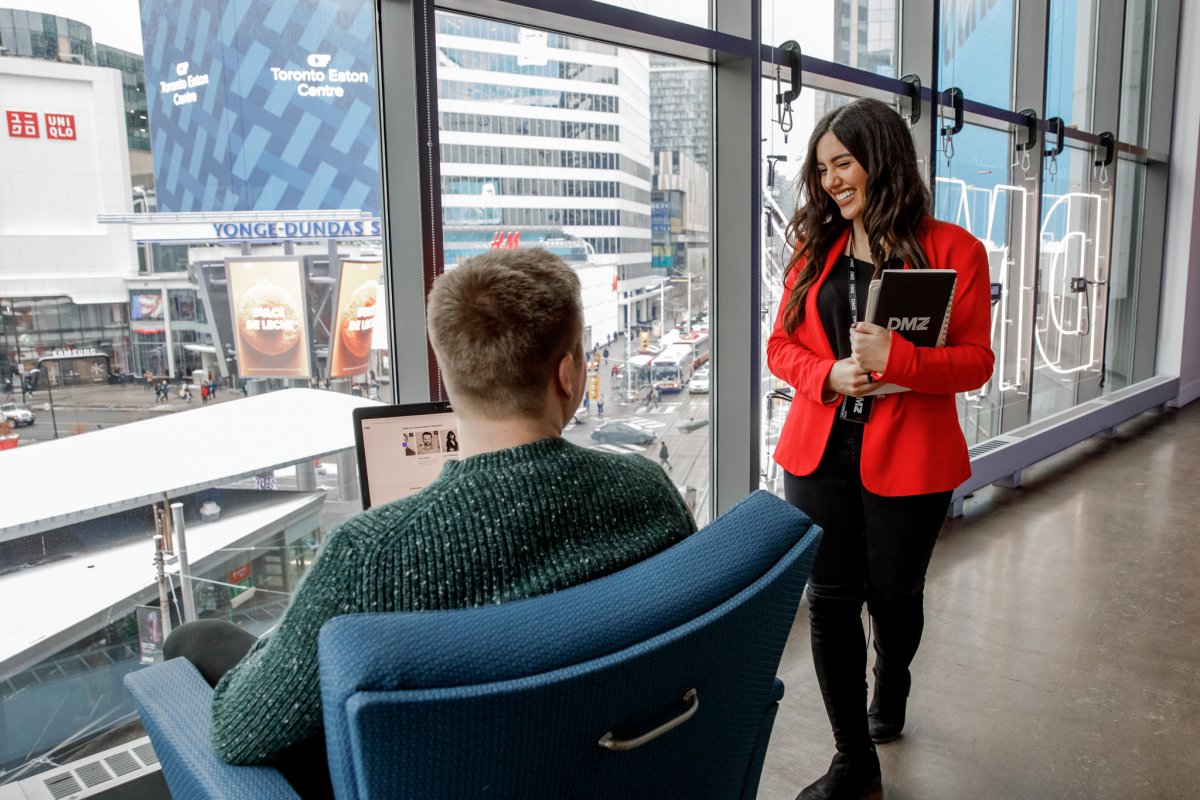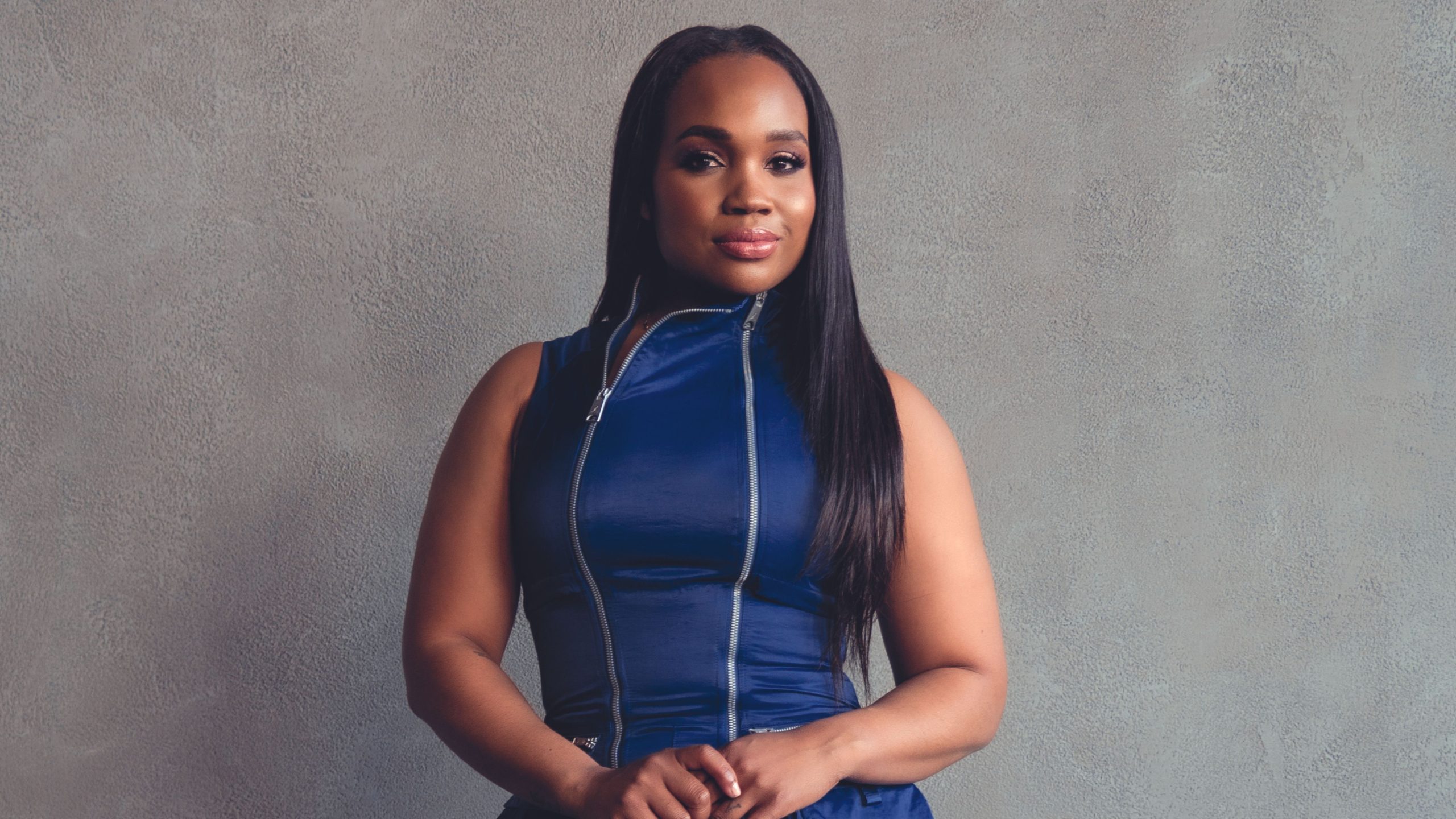[vc_row][vc_column][vc_column_text]You can have a great product, come armed with all the essential skills, and know a few of the right people, but in the ever-unpredictable world of startups, success in the business oftentimes predicates on the larger community and support system around you. Incubators can offer the added insight, expertise, and meaningful connections necessary to get startups off the ground and positioned for success on the fast-paced global playing field.
The DMZ at Toronto Metropolitan University is a leading tech incubator that helps high-potential startups grow and scale to world-class tech businesses by connecting them with customers, capital, experts, and a community of entrepreneurs and influencers. Founded in 2010, the DMZ has evolved over the years to meet the ever-changing entrepreneurial landscape. Today, its presence is known globally with DMZ-powered incubators in over 10 countries.
“One of our values at the DMZ — founders first — means that we are constantly looking to respond to market demands to serve our founders better,” says Abdullah Snobar, the DMZ’s Executive Director. “Their feedback is what shapes our programming and initiatives.”
Snobar points to the DMZ’s former Accelerator program, which was originally established due to market demands for growth support for later-stage startups. “By the time it was operating in full swing, there was an influx of accelerator programs in the market,” says Snobar. “While the program was doing great, we knew the ecosystem lacked programming for earlier staged founders. So, we pivoted — and there was pushback at first. The DMZ has always stayed true to its ethos by doing what’s best for startup founders, even if it may be an unpopular choice. We’re impact-driven – we want to be a contributor rather than just a player.”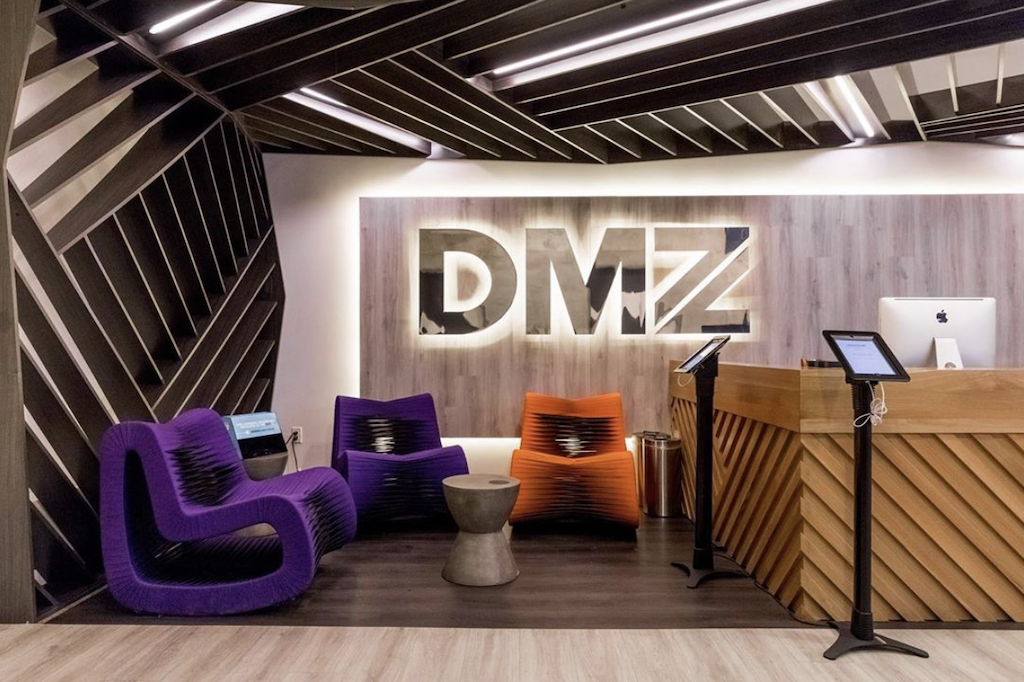

The focus zeroed in on supporting founders reflects the DMZ’s core value that the success of any startup boils down to the person behind it. “Success is 1% idea and 99% execution, so we want to find the founders who can truly deliver on the 99%,” says Snobar. “We look for founders who have grit, hunger, big goals, and resilience. It can be hard to measure these types of characteristics, but from my time at the DMZ, I have learned that you can teach skills, but not character. We’re looking for founders who can pass what I call our ‘Holy sh*t test.’ We want to leave meetings with them with goosebumps — not from their technology, but from their excitement to make an impact and build global businesses.”
Another core value at the DMZ is to “be great.” It’s more than just getting through the day; it’s about setting the bar high and conquering each moment, says Snobar.
Coachability plays a major factor in a founder’s success, explains Snobar. “It’s a two-way street: you have to be able to receive, but you also have to be able to give. Not only do we look at how coachable our founders are, but we look to see if we think they will be able to support other founders down the road,” he says.
Community plays a big role in incubator life
“Community is a strong pillar of the DMZ’s foundation, and our alumni companies play pivotal mentorship roles for our current companies.”
This sense of community builds both career connections, comradery, and even comfort.
“Having a community is so important,” says Cherry Xu, Co-Founder and CTO of Alli Therapy. “Entrepreneurs can become very isolated in their own problems. Being a part of the DMZ community allows founders to share their experiences and common challenges with each other, which is great. Knowing that others are struggling with the same thing is super reassuring and we’re able to share insights to help one another out.”
Alli Therapy provides online mental health support tailored to the needs of parents, from fertility to empty nesters. Xu first joined the DMZ through one of their global locations, Niagara Falls Ryerson Innovation Hub, when she and her team were working on their first business, Mama Mobile. Mama Mobile provides in-home massage therapy and physiotherapy for moms but had to close temporarily due to the pandemic. “With the help of the DMZ, we were able to pivot our services completely and build Alli Therapy into what it is today,” says Xu.
Another resonating core value at the DMZ is equity. Recognizing that not everyone begins at the same starting line, the incubator offers additional tailored support to underrepresented founders in efforts to see a more inclusive tech ecosystem. Above all, the goal is to level the playing field.
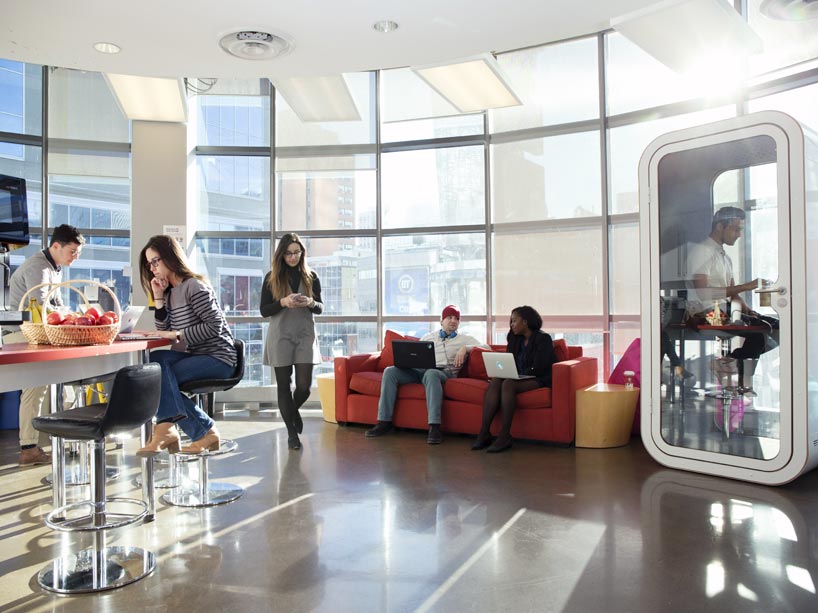

Research, research, research
However, like startups, not all incubators operate on an equal playing field. That’s why it’s vital for startup founders to do their research before choosing to be part of an incubator program.
“Ask yourself these questions; what are you looking for out of the incubator? Are you new to entrepreneurship or a serial entrepreneur?,” said Leonard Ivey, Founder of Softdrive, a startup that provides virtual computer streaming software to any device. “You’ll find value in every incubator but some offer many more foundational workshops, which is great for first-time entrepreneurs. Others offer a hands-off ‘a la carte’ approach. Figure out what you’re looking for and reach out to founders to learn more about the programs.”
Since joining the DMZ, Ivey says that receiving team space for collaboration, sales help and mentorship through the DMZ’s Experts-in-Residence (EiRs) has been transformational for him and his team. “You don’t know what you don’t know,” says Ivey. “It’s important to leverage individuals who have more experience in domains you may not be as familiar with. Learn from others’ mistakes and successes. You can’t do that in an isolated environment.”
Not all incubators are created equally
Mohsen Omrani, Co-Founder and CEO of digital mental health platform OPTT Inc. also points to the differences that exist between different incubators. “Not every incubator is created the same way, and many specialize in different fields,” he says. “Before joining any incubator, research what their strengths are and use them to your advantage. Remember, an incubator is not school. Not every session is going to be relevant to you, and you should put your time in where it makes sense. Don’t attend a workshop just for the sake of attending. Your time is gold, make sure you spend it right.”
OPTT provides a virtual behavioural health platform for psychotherapists to provide clinically validated interactive therapy to their patients. “One and a half years ago, when we began our fundraising campaign for OPTT Inc., we leaned on the DMZ to finesse our pitch messaging and take it to the next level. This really allowed us to look more professional in front of potential investors,” says Omrani. With access to capital being one of the biggest barriers for startups, the DMZ helps founders to refine their fundraising strategies and pitches, and provides introductions to investor and angel networks.
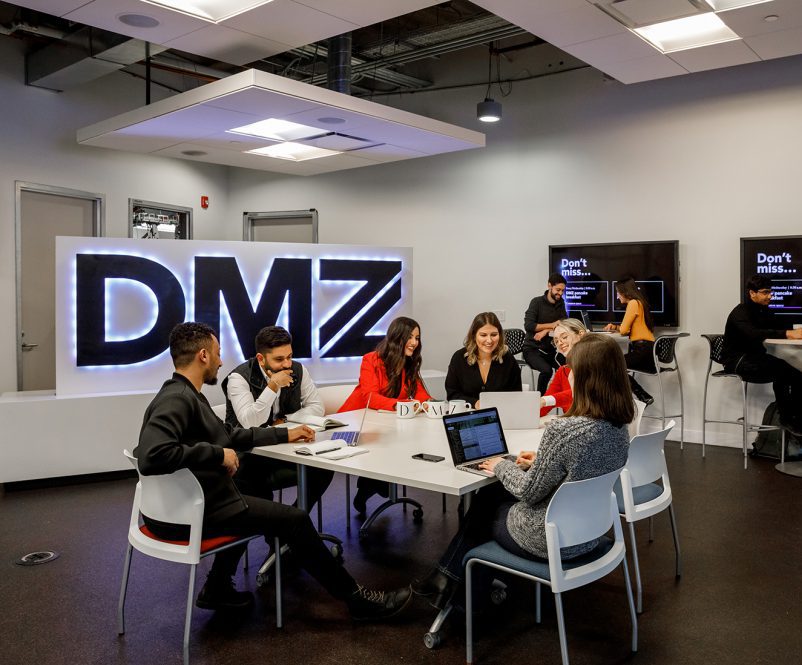

“Over the last year, I’ve also been using executive coaching provided by an experienced DMZ EiR , which helped me navigate the intricacies of running a bigger team – and transform from a two-man shop into a much bigger organization successfully.”
What the DMZ hopes for from founders
Just as startup founders should know precisely what they want from incubators, the DMZ knows what it’s seeking in terms of ideal candidates (aside from “being great” – that’s a given).
“There are a handful of benchmarks that we look for when inviting a startup to join our programming,” said Snobar. “For our Incubator program, we’re looking for pre-seed and seed-stage startups that have a business dedicated to solving a compelling issue with tech. Incubators should have a working MVP and have at least one full-time founder who can be dedicated to the program. It ultimately comes down to whether the company is in a place where they can hit the ground running to drive their business forward.”
[yikes-mailchimp form=”1″ title=”1″ submit=”SUBSCRIBE”][/vc_column_text][/vc_column][/vc_row]


